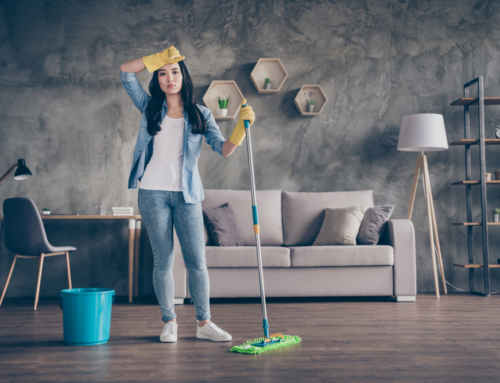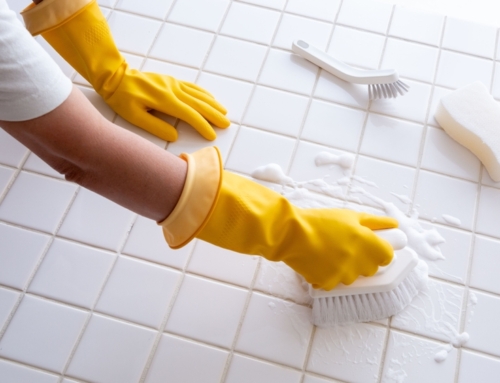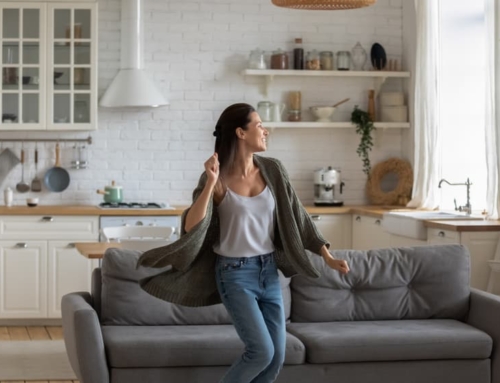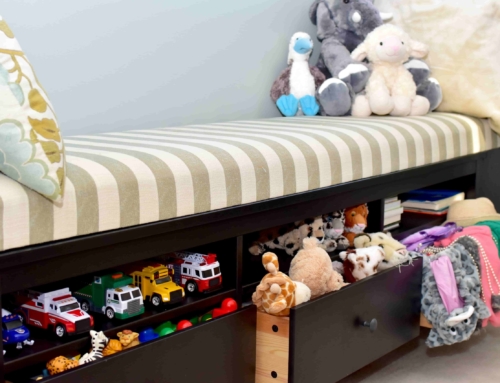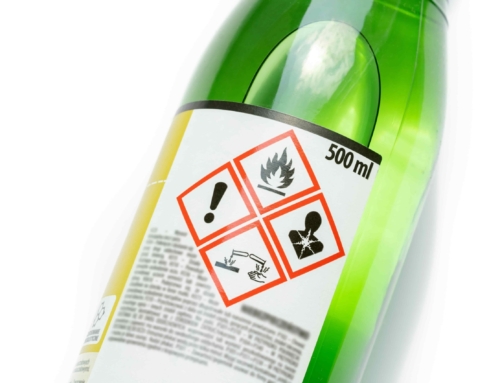Most people want a clean home. You probably spend a few hours a week cleaning and tidying your house yourself or perhaps you pay for a cleaning service to do it for you. Either way, it feels good when you know the surfaces and furnishings of your home are dirt- and germ-free. But how clean is your home really if you’re not doing anything to rid the air in it of that same dirt, bacteria, and other particles that you work so hard to remove from the physical things in your house?
Despite all the work you put into creating a fresh, healthy environment for your home, you might be missing out on this one important aspect. Clean air can be beneficial for your family’s health and the general comfort of your home.
Today, there are countless air purifiers on the market to help you clean the air in your house, but if you’ve never used one before, you might not know much about them. You might wonder do they actually work and are they worth it? Or are they expensive or require much maintenance?
Here are the answers to all your questions about air purifiers. Whether you’re hesitant to try one or eager to but don’t know where to start in picking one out, these are the top six things to know about air purifiers for your home.
#1 Do air purifiers work?
Yes and no. Most do, but some, unfortunately, do not. It really depends on what you want the air purifier to do. Most air purifiers are made to catch ordinary dust and pollen in the air, but they won’t catch particles and allergens that are stuck to furniture and carpets or other pollutants like gasses and chemicals. A few air purifiers are designed to filter out gasses and chemicals with activated carbon, but you will need to look for these models specifically.
You also need to beware of exaggerated promises of how effective air purifiers are. Most lab tests are done in controlled conditions that don’t mimic real-life environments like your home. Furthermore, sometimes those claims that air purifiers catch 99% or more of airborne particles are true of the filters in them, but the unit itself may leak unpurified air and allow some of those particles back into your home.
Ultimately if you do your research to find a highly rated model with the right features, you can buy an air purifier that will catch the majority of airborne particles and improve the air quality of your home the way you want.
#2 How do air purifiers work?
Air purifiers usually contain a fan that sucks in and circulates air and a filter or multiple filters that catch the pollutants in the air before the air is blown back out into your living space. These filters can be made of paper, fiberglass, or mesh.
Today high-efficiency particulate air (HEPA) filters are the most common filters in air purifiers. These use dense, randomly arranged fibers to catch as many as 99.97% of particles you don’t want in your air.
Additionally, some air purifiers may also use activated carbon filters to absorb gas, chemical, and VOC molecules. These units contain a bed of activated carbon, whose pores absorb the gas and chemical molecules which then bind to the carbon as the purified air is pushed back out into your room.
#3 What are the benefits of an air purifier?
Because every home is different and scientists don’t understand all the causes of allergies and how typical pollutants affect our lungs, it’s difficult to say with certainty that air purifiers improve health. However, a good air purifier will filter out allergens and pollutants that are known to irritate the respiratory system, so if you’re concerned about the air quality in your home, getting an air purifier certainly won’t hurt.
The best kind of air purifier for allergies will use a true HEPA filter to catch everything from dust to pet dander to pollen and even mold. Removing these allergens from the air you breathe can help alleviate allergy symptoms and give you some relief in the comfort of your home.
Air purifiers are also popular among households with smokers. Second-hand smoke is just as dangerous to your health as smoking is, so many families do their best to minimize these risks with a good quality air purifier. Any air purifier for smoke should contain activated carbon, as this is the only way to truly filter out both the odor and the chemicals of cigarette smoke.
#4 How much do air purifiers cost?
Like any appliance, air purifiers vary greatly in cost according to model, size, features, brand, etc. A small unit can cost less than $50 at some retailers, while a whole house system can set you back thousands. But the cost of the air purifier itself isn’t the only number you need to consider.
After the initial purchase of your air purifier, you will also need to power it and perhaps buy replacement filters for it, depending on the model. Since your air purifier should be running constantly, you could spend on average $50 a year for the electricity to power it. Additionally, replacement filters can cost as much as $100 or more annually.
When comparison shopping, look at how much space an air purifier covers, its wattage, how often the filter needs replaced, and how much replacement filters are to determine the true price of purified air for your home.
#5 What features should I look for?
To get an air purifier that is guaranteed to perform efficiently, effectively, and safely, look for a model that contains these features:
- HyperHEPA or True HEPA filter for
- Activated carbon filter (if you’re concerned about gasses or cigarette smoke)
- A CADR (clean-air delivery rate) of at least 300
- The AHAM (Association of Home Appliance Manufacturers) Verified mark
- A design that minimizes air leakage
Additionally, look for features that fit your preferences. For instance, do you want a reusable filter that you must wash periodically or would you rather throw out dirty filters and buy new ones each time? Do you want a purifier for a small room or one that can handle a larger room? Air purifiers also come in a variety of styles and colors today to match your decor.
One last note: don’t get an air purifier that has an ionizer. Many models use ionization technology to send out negatively charged ions that attract positively charged particles in the air.
However, that still leaves negatively charged particles in the air, and ionization creates ozone, which is a dangerous irritant when even low levels of it build up in your home. You are better off selecting a model that forgoes any use of ionization.
#6 Do air purifiers require any maintenance?
Yes, a little. Depending on the model of air purifier you choose, you will need to either replace or wash the filter regularly. How frequently you need to replace the filter will depend on the model of air purifier you have, how polluted your home’s air gets, and if you run the air purifier constantly or not.
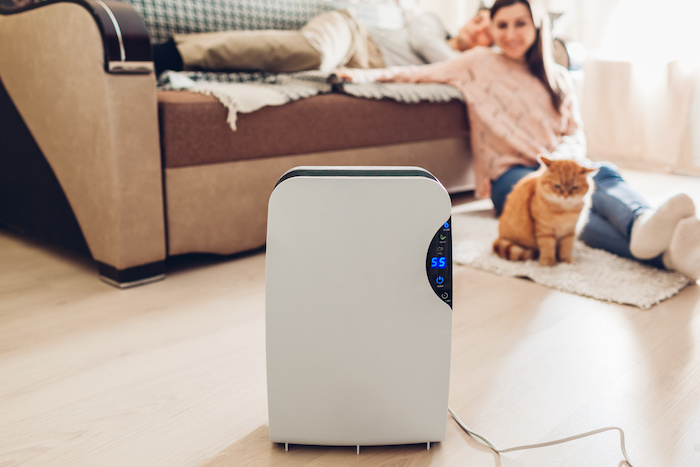
Relax with a Clean Home
Many people who love a clean home want to know that the air in their house is clean too. The jury is still out on just how necessary purified air is, but if you don’t want to take any chances on your family’s respiratory health, purchasing an air purifier is a great way to put your mind at ease.
Now that you know what to look for in an air purifier and what to avoid, you can confidently purchase a unit that fits your home’s needs and has a big, clean sigh of relief.
Ready to have the peace of mind that comes with a clean home? Clean My Space CT offers house cleaning services to the central part of Connecticut. We know you take your home’s cleanliness seriously, and we do too. We leave every client 100% satisfied with our affordable, quality cleaning services.
Request a quote today and find out how to get a discount on your next house cleaning by Clean My Space CT!



